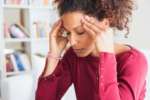Your brain is one of the most important parts of your body–the main control center for all of your emotions, thoughts, movements, speech, and memory. The brain is made up of a series of complicated folds, neurons, tissues, and various regions that are all responsible for different functions. So when you begin to experience adverse symptoms related to sight, headaches, nausea, speech, or motor skills, it could be a benign tumor called a meningioma.
What Exactly Is A Meningioma?
Meningiomas are slow-growing tumors that develop in the tissue that surrounds the brain and spinal cord. This tumor, which is the most commonly diagnosed brain tumor, puts pressure on the area of the brain where it’s located, as well as the surrounding nerves and vessels. Due to its location, it can cause headaches, nausea, vomiting, seizures, problems with vision or speech, or even motor skills issues. Most meningiomas occurs within the head, meaning inside the skull, at the base of the skull, or just above the spinal cord.
How Do I Know If I Have A Meningioma?
Not all patients who have meningiomas experience these adverse symptoms listed above. In fact, they sometimes don’t exhibit any symptoms at all. Those who do experience symptoms like changes in eyesight may experience partial or complete loss of vision, usually in just one eye. It can also lead to blind spots or blurred and double vision. Depending on the location, the tumor can also press on the nerve that controls hearing, leading to hearing loss. While these symptoms are easy to pinpoint and are cause for some serious concern, some people with meningiomas experience more subtle symptoms, like changes in personality.
If you ever experience neurological symptoms like these, it’s important that you address them immediately. While meningiomas are benign, there are many other brain or nerve issues that may be more serious and can lead to similar symptoms with a less positive diagnosis. At NewSouth Neurospine, we can diagnose illnesses, including meningiomas, with our advanced equipment and experienced team of doctors.
How Is A Meningioma Diagnosed?
Meningiomas are typically diagnosed with a scan of the brain, usually an MRI or a CT scan. While some patients come in with symptoms that need to be diagnosed, leading to the need for test, other times these tumors are diagnosed from a scan done for an unrelated reason, like a head injury or accident.
What Are Treatment Options For Meningiomas?
Meningioma treatment options vary based on a lot of factors. The tumors are graded between one and three, with one being the most common and the easiest to treat. Grades two and three are more rare and grow more quickly, sometimes growing back after treatment. Depending on your individual case, factoring in the size and location of the tumor, we can formulate a treatment plan. Most plans include watching and waiting, meaning we’ll keep an eye on the tumor to follow its growth. Other meningiomas may require surgery, especially ones that grow quickly or produce debilitating symptoms. In some more rare cases, we may need to use radiation to kill the tumor. If you’re concerned about any negative neurological symptoms like the ones mentioned above, request an appointment online so we can test and observe you as needed.






